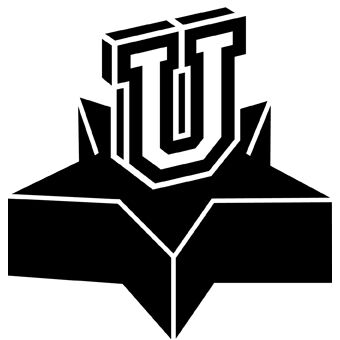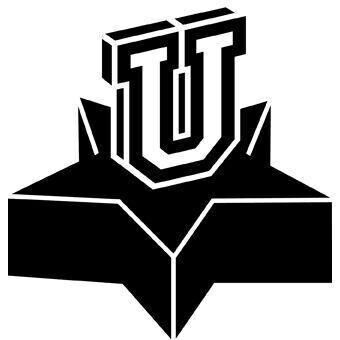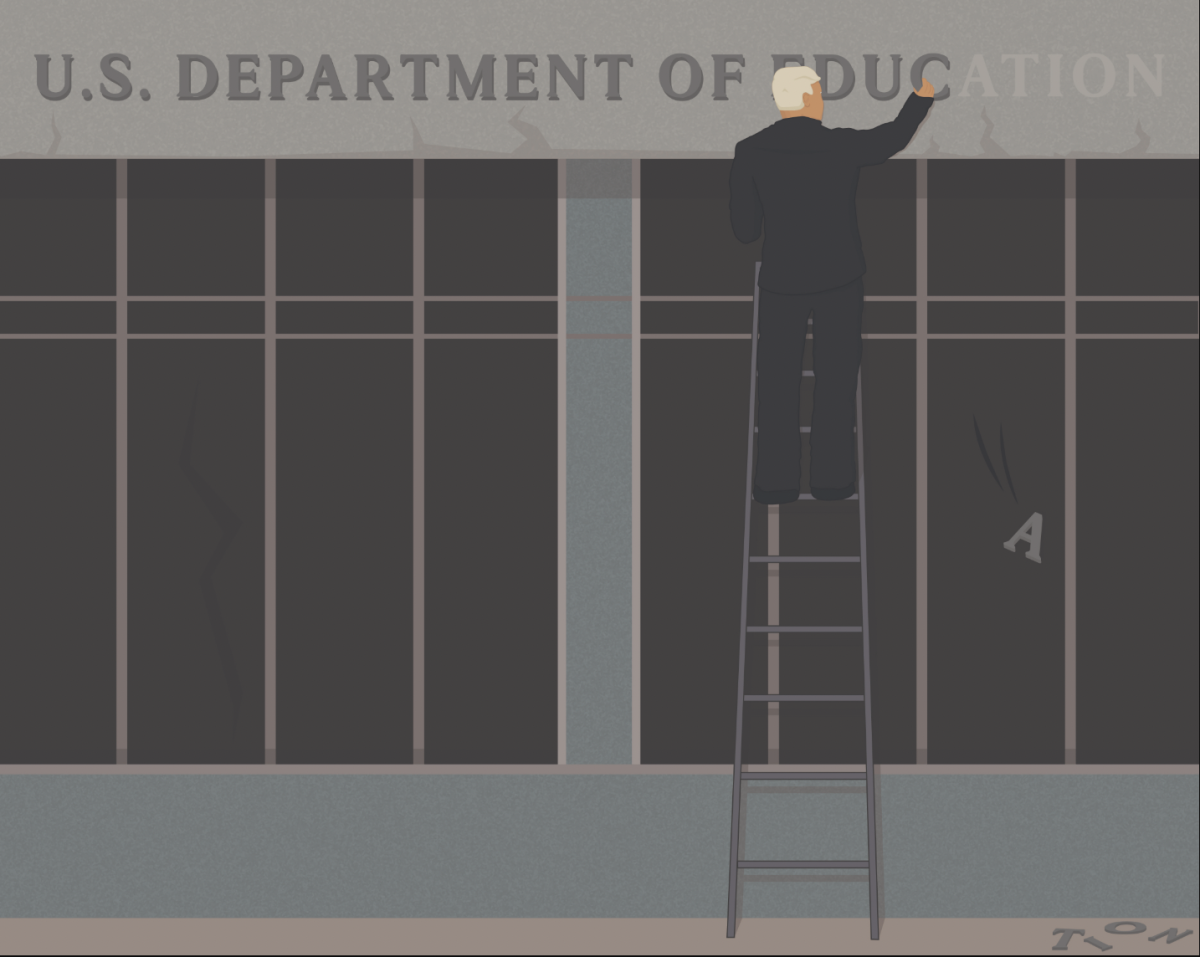Every Bobcat has their own way of walking to and from classes–some meander slowly and take in the never-ending freeform orchestra of people, animals and nature interacting amongst one another; some lock eyes with their screens and intuit the path ahead by some miracle; some stake out meeting spots to chat momentarily with passersby. The common thread connecting Bobcat jaunts is the epicenter of path-crossing madness that is the Quad.
“Market Day” comes around a few times a semester, a chance for local businesses and students to commingle and exchange money for wares in the quad for the good of the school and community. Revenue derived from vendor registration fees is disbursed to student organizations via LBJSC. Sponsored by the Student Involvement organization, Market Day is a beautiful event, brightening the day of run-ragged Bobcats trudging through midday lulls and crises. The ubiquitous kettle corn cauldron being stirred can be smelled from clear across campus. Local jewelry vendors and t-shirt makers and student organizations hand out flyers and samples and offer carnival attractions under their tents. The environment is largely lighthearted and positive. Beyond the jovial nature lies a slightly upsetting reality in need of correction; vendors offering potentially financially detrimental services should be denied a space to hawk their goods and services.
Documents obtained via open records request filed with Texas State’s General Counsel confirm the presence of multiple multilevel marketing companies (MLM) operating on our publicly funded college campus. For just a nominal fee–105 bucks–these businesses have been able to operate unabated under the beautiful oaks flanking the quad walkways for years.
Multilevel marketing has a long history, with roots stretching back as far as a hundred years in the United States. Cosmetic companies like Mary Kay and Avon are longtime multilevel marketing companies; Herbalife–the wellness company with a $200 million FTC settlement in its past and numerous active lawsuits across multiple federal jurisdictions filed against them–proudly boasts of its multilevel money-making opportunities. Strangely enough, the woman in charge of charting our nation’s educational course, Betsy DeVos, is a beneficiary of another multilevel marketing company through marriage–the behemoth Amway.
The source of multilevel marketing revenue for independent distributors is two-pronged: income is derived by selling product packages purchased from the company and also by way of recruiting other participants to sell products, through which the initial distributor will receive a percentage of those sales. The goal of any distributor is to recruit as many other distributors as possible and have those distributors recruit more to create the largest possible network of sellers underneath–ad infinitum. The organizational chart, or “downline,” of one’s independent distributing business would resemble a pyramid of sorts if put to paper.
Documents obtained via open records request show at least two separate multilevel marketing companies paying their way into the Market Day festivities in the past three years: Lularoe and Advocare. Lularoe specializes in women’s apparel and Advocare, according to their website, “provides innovative nutritional, weight-management and sports performance products.” Heavyweight sports stars from Texas like Drew Brees and Patrick Mahomes use their considerable clout as spokespeople to promote Advocare products.
Bob Ferguson, Attorney General from the state of Washington, recently filed suit against Lularoe on behalf of citizens allegedly wronged by the company; the complaint alleges Lularoe to have “established, promoted, operated, and participated in an unlawful pyramid scheme[.]” Similarly, there is a pending class action case filed against Advocare in the United States District Court for the Northern District of Texas. The law firm of Reid, Collins and Tsai filed the case on behalf of a class of plaintiffs alleging Advocare’s actions constitute an illegal pyramid scheme and are in violation of a number of state and federal laws.
The Direct Selling Association (DSA) is the K Street trade association responsible for a number of services provided to multilevel marketing companies, including Advocare. The association recently issued a sharp rebuke of Lularoe in response to the Washington AG’s suit.
According to DSA fact sheets from the year 2017, nearly 40 percent of those involved in direct selling are millennials or gen Z’ers, with close to 75 percent being women. Wellness products reign supreme as the largest sector of the direct selling economy.
Tucked away on one of Advocare’s many website pages is a startling admission in the form of a brightly colored table under their “compensation from Advocare” banner: more than two-thirds of those recruited to sell Advocare products in 2017 made zero dollars in income. Zero dollars. Another 20 percent earned less than 200 dollars in income in 2017. A small font disclaimer below one of the tables pushes a further nail in the coffin by explaining that the income numbers reported do not include expenses incurred by distributors.
Start-up costs and expenses are incurred while little to no money is made– surely this is the sign of a bad investment for cash-strapped Bobcats.
The Dean of Students Office, ostensibly in charge of delegating or running Market Day events, presents their mission statement thusly: “The Dean of Students Office will be nationally recognized for standards of excellence in the delivery of student services and to foster a welcoming environment that is inclusive, safe and conducive to learning.” These words will continue to ring hollow as long as the university administration allows potentially harmful businesses to lure students into shaky, binding minefields. A business model so bereft of winners should be recognized as an outright disruption, contradictory in whole to the spirit of a safe educational space.
Students across Texas are faced with mounting financial issues, the looming specter of student loans looming most ominously. TICAS, or the Institute for College Access and Success, is an organization that provides data showing the amount of debt students take on across the United States. According to TICAS’s data for 2017, Texas State graduates that took out some sort of loan graduated with an average debt burden of nearly $27,000. Two-thirds of Texas State graduates in 2017 carried some amount of student loan debt. Those daunting numbers coupled with rising healthcare costs, housing obligations and myriad other financial constraints paint a tumultuous picture for young adults looking to launch their lives after a successful collegiate tenure.
Those responsible for putting on events for students are surely aware of the student loan crisis bearing down on the entire nation’s youth and they should find within themselves the will to act in a manner conducive to minimizing students’ financial woes. Excluding vendors from campus that may cause severe financial damage, a right afforded to the Dean of Students and the Student Involvement organization under the policies and procedures governing Market Days would send a clear message of solidarity to everyone traversing the San Marcos hills daily.
Powerful interests, like trade associations and nationally recognized politicians, have combined forces to create and sponsor legislation seeking an end-around panacea for their industry’s blatant malfeasance. Billion dollar industries can afford to shift public perception, curry favor and fundamentally shape enforcement strategies responsible for policing their actions.
Campus events are supposed to be about fun and inspiring radiant happiness and togetherness for those fortunate enough to find their way into our collective educational fraternity. Texas State exists not only to illuminate the pathway to future success and financial stability but to safeguard students’ current well-being.
– Zachary Keel is a sociology graduate
Categories:
Letter to the Editor: Market Days on the Quad should not include MLMs
February 25, 2019

uStarlogo
0
Donate to The University Star
Your donation will support the student journalists of Texas State University. Your contribution will allow us to purchase equipment and cover our annual website hosting costs.
More to Discover











